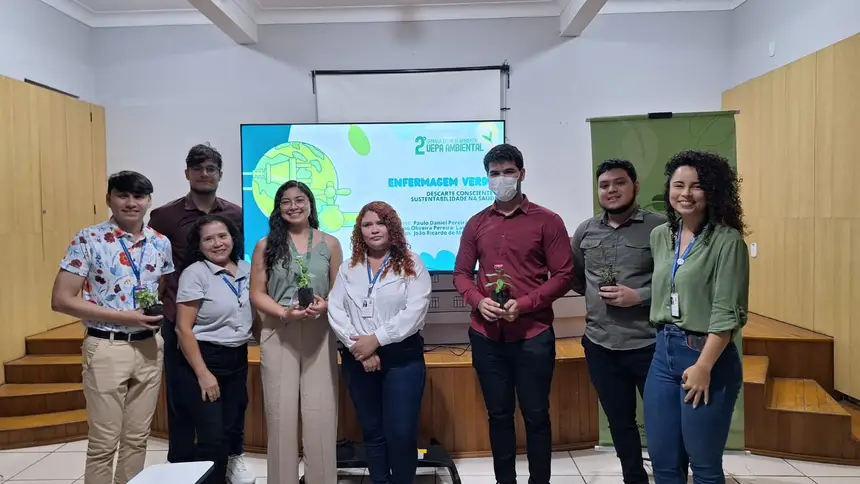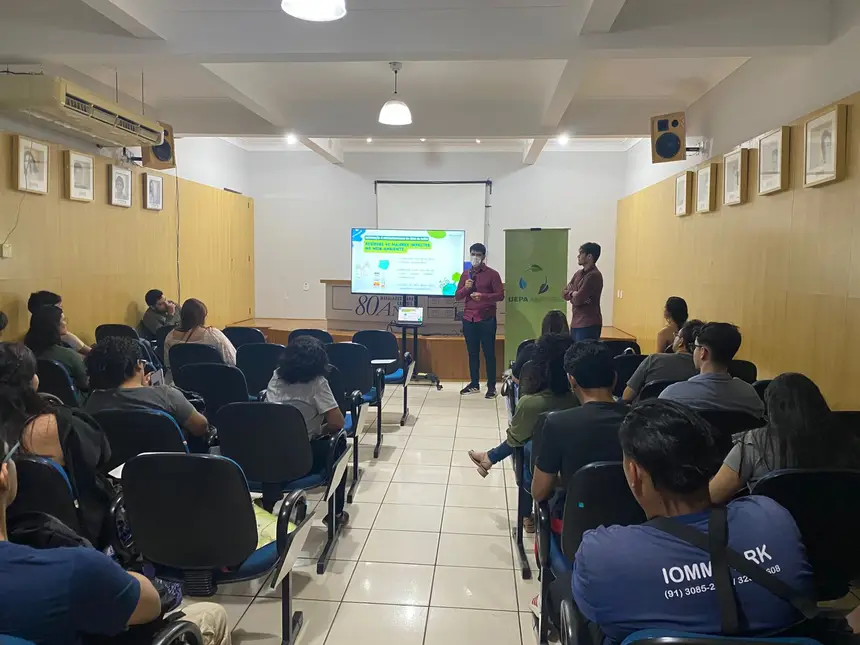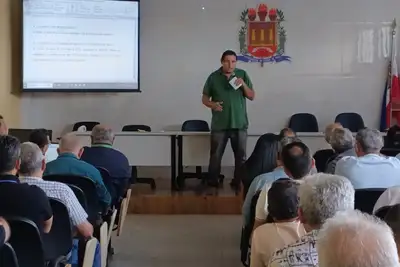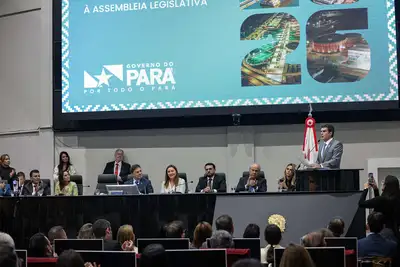Uepa Nursing School Shows the Role of the Environment in Health
The Nursing School promotes a program aimed at raising awareness among students about sustainability in the health sector
The environment is one of the social determinants of health, and promoting sustainability impacts the quality of life of the population. With this focus, a program was held on this Monday, 16, at the Nursing School/Campus IV of the Center for Biological and Health Sciences (CCBS), aimed at raising awareness among students about sustainability in the health sector.
The activity, part of the II Environmental Week of the Uepa Ambiental program, was divided into two moments at the Nursing campus. In the first, there was the lecture "Safety, Sustainability, and Health: Managing Waste in Hospital Environments" given by the administrative coordinator of the campus, Albrendell Andrade Ferreira, and the workshop "Green Nursing: Conscious Disposal and Sustainability in Health," conducted by students from campus IV.
In the second moment, students participated in a team action to identify, discuss, and resolve health-related problems. The theme of the II Environmental Week is "Waste Management and Climate Change: the Role of Uepa, COP 30, and the Commitment to a Sustainable Future."
The lecture highlighted the correct separation of hospital waste and the importance of avoiding the mixing of contaminated materials with regular trash. Albrendel Ferreira, a specialist in Hospital Management and Health Systems Auditing, addressed the risks to health and the environment and provided guidance on proper handling procedures, reinforcing the environmental responsibility of institutions to adopt sustainable and safe practices.
Larissa Cristina Santos, a 7th-semester nursing student and one of the facilitators of the Green Nursing workshop, spoke about the relevance of the event for the training of future professionals, especially in a climate crisis scenario, where training is essential to mitigate the environmental effects caused by practices that pollute nature at an increasing rate. The other students who promoted the workshop were Paulo Daniel Raad, João Victor Pereira, and João Ricardo Medeiros.
"It is expected that participants will acquire technical knowledge about the correct disposal of waste and understand the current legislation, in addition to feeling encouraged to adopt sustainable practices in the academic environment and, in the future, in their workplaces. It is essential for a nurse to develop critical thinking and, with that, to develop strategies that benefit the environment they lead, as well as their own patients through guidance and other care," she added.
The university student explained that in the Nursing course at Uepa, from the first semester, the development of this critical and professional vision is taught, thus, she also hopes that participants will finish the moment more capable of observing the different realities of nursing with a sustainable perspective.
"Environmental degradation and the lack of sustainability directly impact health, increasing the risk of various diseases such as respiratory, infectious, and mental illnesses. In the hospital environment, with knowledge, the professional can correctly dispose of items such as infectious, chemical, radioactive, and common waste (plaster, gloves, gauze, non-contaminated papers, and food scraps). These wastes affect the population and the environment, so taking care of the environment is essential to protect public health," she added.
Collection - The initiative also included an electronic waste collection action, the implementation of eco-points, as well as Voluntary Delivery Points (PEV) for cooking oil at various Uepa campuses. One of the points installed for the academic community is at CCBS/Campus II, in the Marco neighborhood. The action continues with programming at campus V/CCNT until the 17th in Belém.
Regarding the eco-point, important guidelines were provided, including depositing recyclable materials properly cleaned and separated. For the disposal of materials received during the action, it is necessary to deliver them correctly, as in the case of cooking oil, which must be stored in a container with a lid, such as a PET bottle or a glass container. Improper disposal of this fat can lead to the contamination of water sources and soil.
Text: Diane Maués, journalist (CCBS) and Vitória Balieiro (intern under the supervision of Diane Maués)











